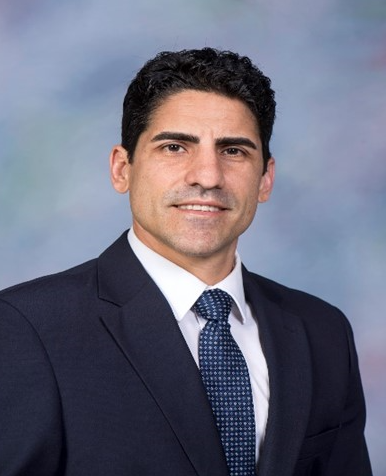You're invited to join the Department of Chemical Engineering for a seminar by Professor Rafael Verduzco, a Professor in the department of Chemical and Biomolecular Engineering and Materials Sciences and NanoEngineering at the Univeristy of Rice, Houston, Texas.
Abstract
The Verduzco laboratory develops functional polymeric materials for applications in energy harvesting, remediation, and sensing and addresses grand challenges in the development of soft materials by correlating molecular-level changes in chemistry and structure to bulk property changes and application-specific characteristics. In this presentation, I will present work related to ionically-conductive polymers, which have a variety of applications including water treatment and biomolecular detection. In the first part of the talk, I will discuss the challenge and importance of separating ions of similar hydrated size and charge. Polymers that can selectively transport specific ions are needed for applications in water treatment, water purification, energy generation, and energy storage. While current polymeric membranes generally exhibit poor selectivities, naturally occurring ion pores and channels can separate ionic mixtures with selectivities greater than 1000 for similar ions (e.g. Na+ and K+). By leveraging concepts from these naturally occurring ion pores, we design synthetic membranes and coatings with excellent selectivities for specific cations. We demonstrate that these materials can be incorporated in a continuous-flow electrodialysis separation process to remove scalants. Future work will leverage these findings to develop a more efficient process for copper recovery and for the recovery and purificiation of rare earth elements. In the second part of the talk, I will discuss our work to develop a sensor for SARS-CoV-2, the virus that causes COVID-19. Rapid, sensitive, and versatile sensors are needed to address the current pandemic and potential future outbreaks. Here, we demonstrate how organic electrochemical transistors can provide a sensitive and specific response to SARS-CoV-2. These devices are based on an electronically and ionically-conductive polymer that forms a channel between source and drain electrodes. By functionalizing the channel surface with a protein or antibody that recognizes the virus, rapid, sensitive, and specific detection can be achieved. Importantly, the sensors can be fabricated at low cost without the need of microfabrication techniques, and the response can be tailored towards different viruses. Ongoing work is focused on integrating these sensors with bio-aerosol collectors to achieve direct detection of viruses in air. These studies demonstrate the potential of engineered polymeric materials to address societal needs related to health and sustainability.
Biographical Sketch

Microsoft Teams meeting
Join on your computer or mobile app
Click here to join the meeting
Or call in (audio only)
+1 226-243-6399,,989868736# Canada, Kitchener-Waterloo
(833) 827-4832,,989868736# Canada (Toll-free)
Phone Conference ID: 989 868 736#
Find a local number | Reset PIN

Important: The Teams application should be used whenever possible. If attendees must dial-in to a meeting, use the toll-free dial-in number. Do not use 226-243-6399 or any other local number.
Learn More | Help | Meeting options
Important: The Teams application should be used whenever possible. If attendees must dial-in to a meeting, use the toll-free dial-in number. Do not use 226-243-6399 or any other local number.